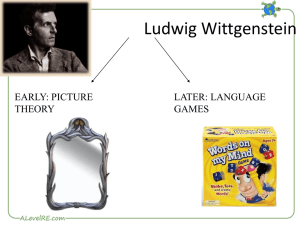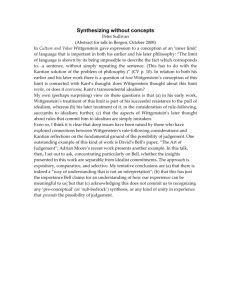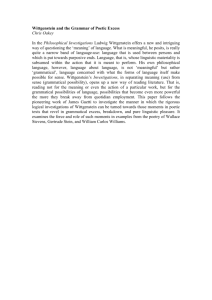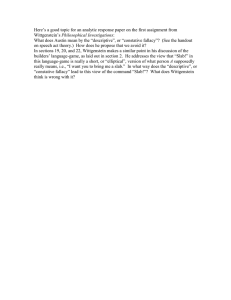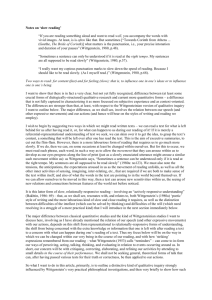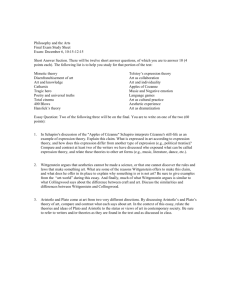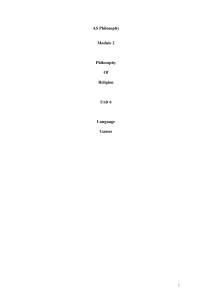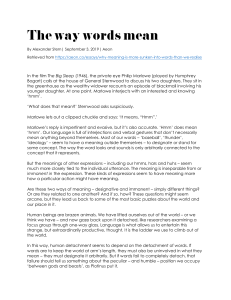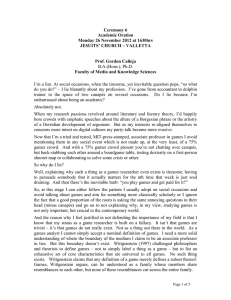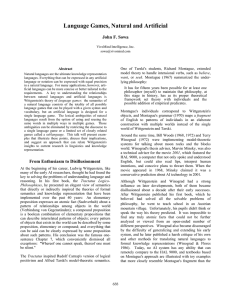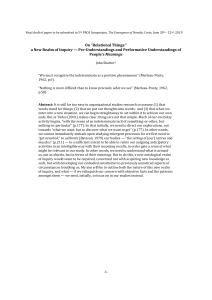Philosophy of Language: Wittgenstein Fall 2003 Professor Boedeker Philosophical Investigations
advertisement
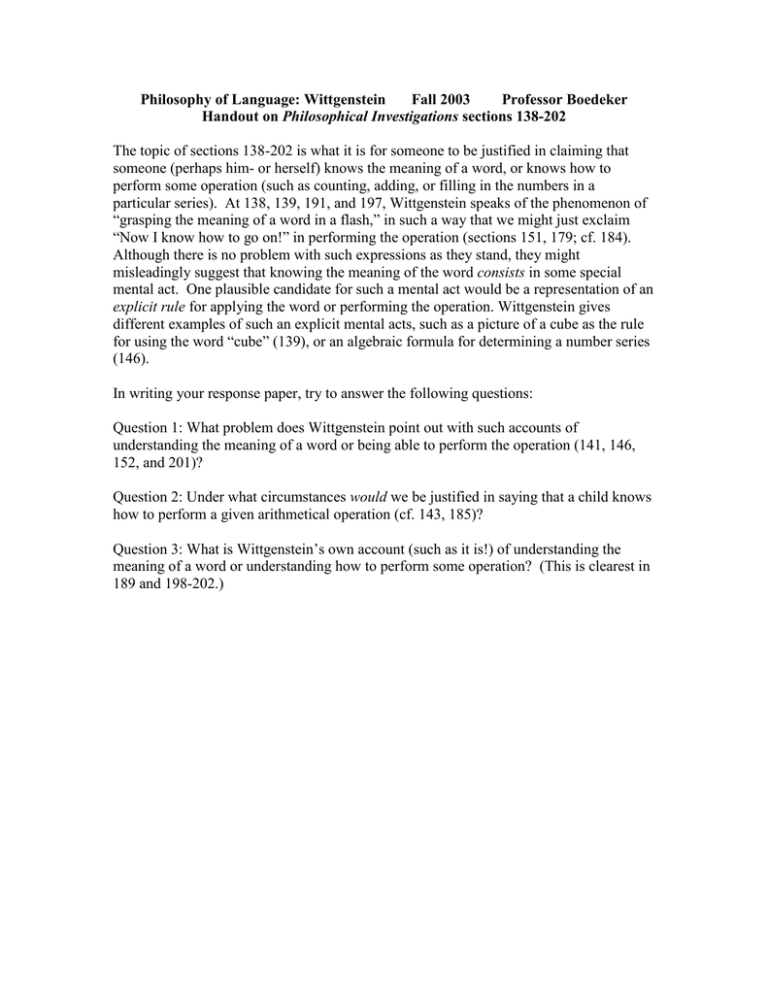
Philosophy of Language: Wittgenstein Fall 2003 Professor Boedeker Handout on Philosophical Investigations sections 138-202 The topic of sections 138-202 is what it is for someone to be justified in claiming that someone (perhaps him- or herself) knows the meaning of a word, or knows how to perform some operation (such as counting, adding, or filling in the numbers in a particular series). At 138, 139, 191, and 197, Wittgenstein speaks of the phenomenon of “grasping the meaning of a word in a flash,” in such a way that we might just exclaim “Now I know how to go on!” in performing the operation (sections 151, 179; cf. 184). Although there is no problem with such expressions as they stand, they might misleadingly suggest that knowing the meaning of the word consists in some special mental act. One plausible candidate for such a mental act would be a representation of an explicit rule for applying the word or performing the operation. Wittgenstein gives different examples of such an explicit mental acts, such as a picture of a cube as the rule for using the word “cube” (139), or an algebraic formula for determining a number series (146). In writing your response paper, try to answer the following questions: Question 1: What problem does Wittgenstein point out with such accounts of understanding the meaning of a word or being able to perform the operation (141, 146, 152, and 201)? Question 2: Under what circumstances would we be justified in saying that a child knows how to perform a given arithmetical operation (cf. 143, 185)? Question 3: What is Wittgenstein’s own account (such as it is!) of understanding the meaning of a word or understanding how to perform some operation? (This is clearest in 189 and 198-202.)
